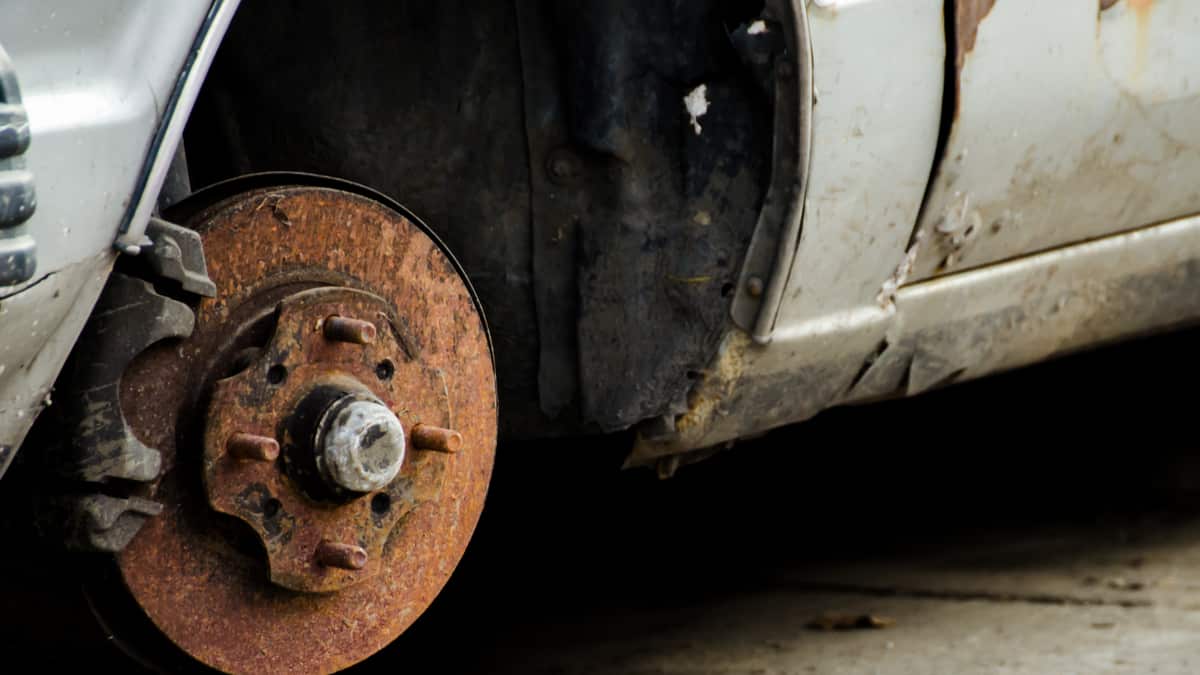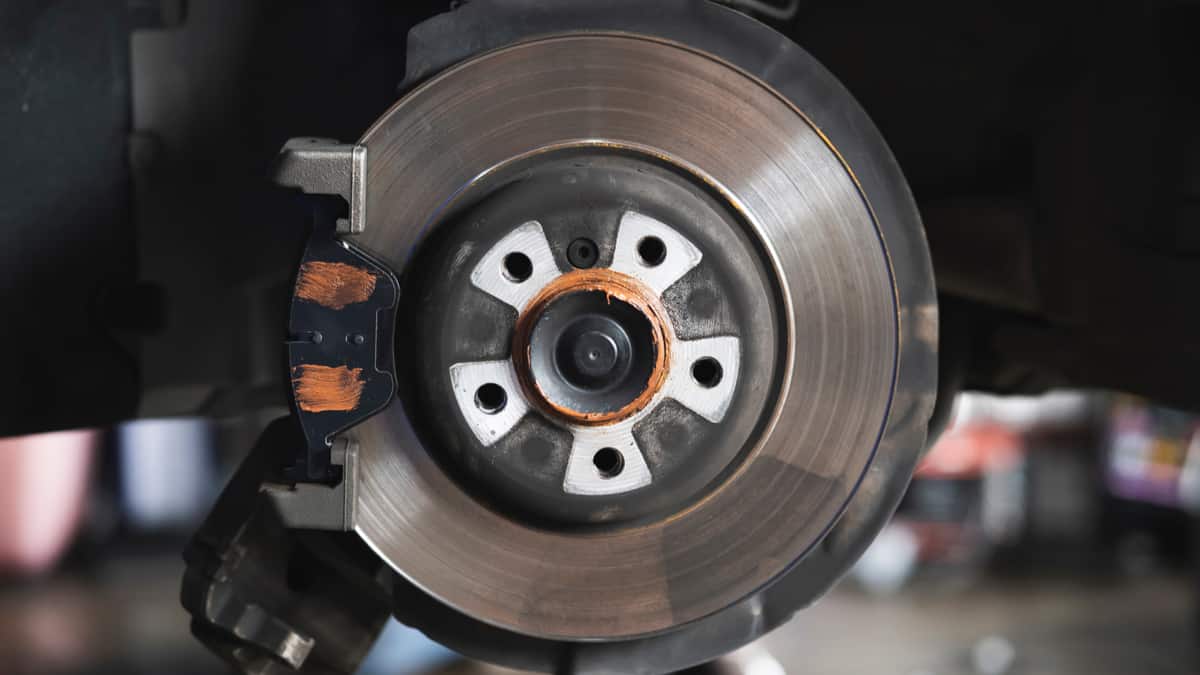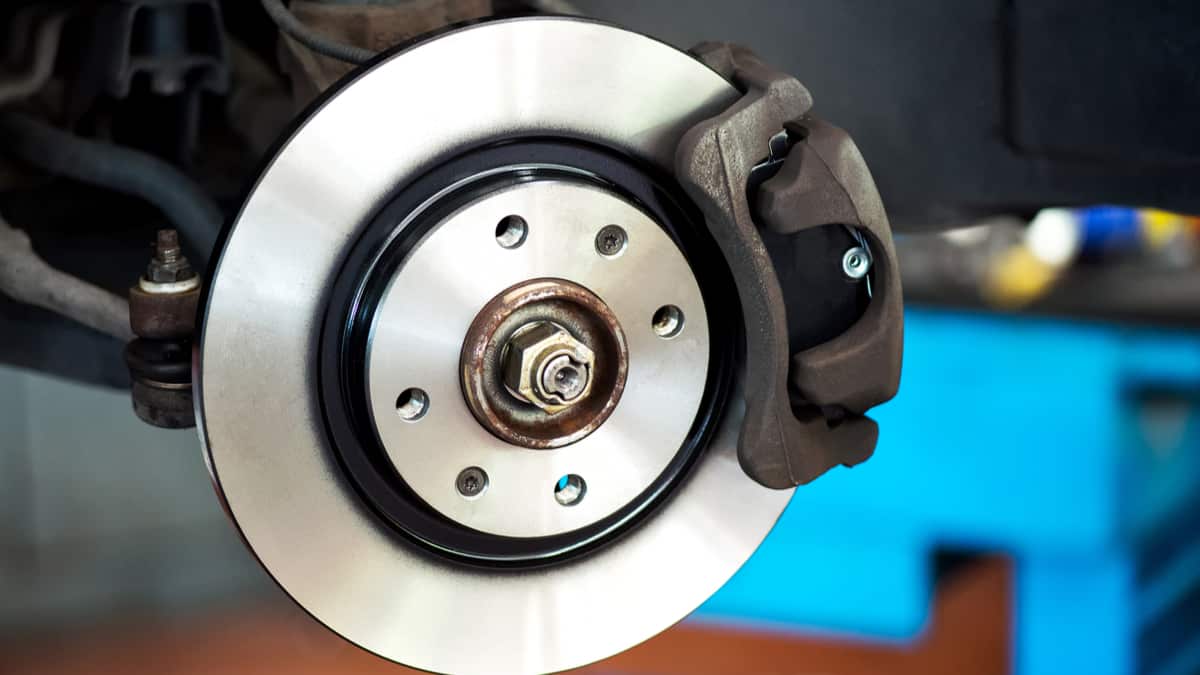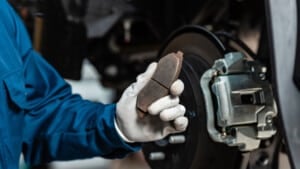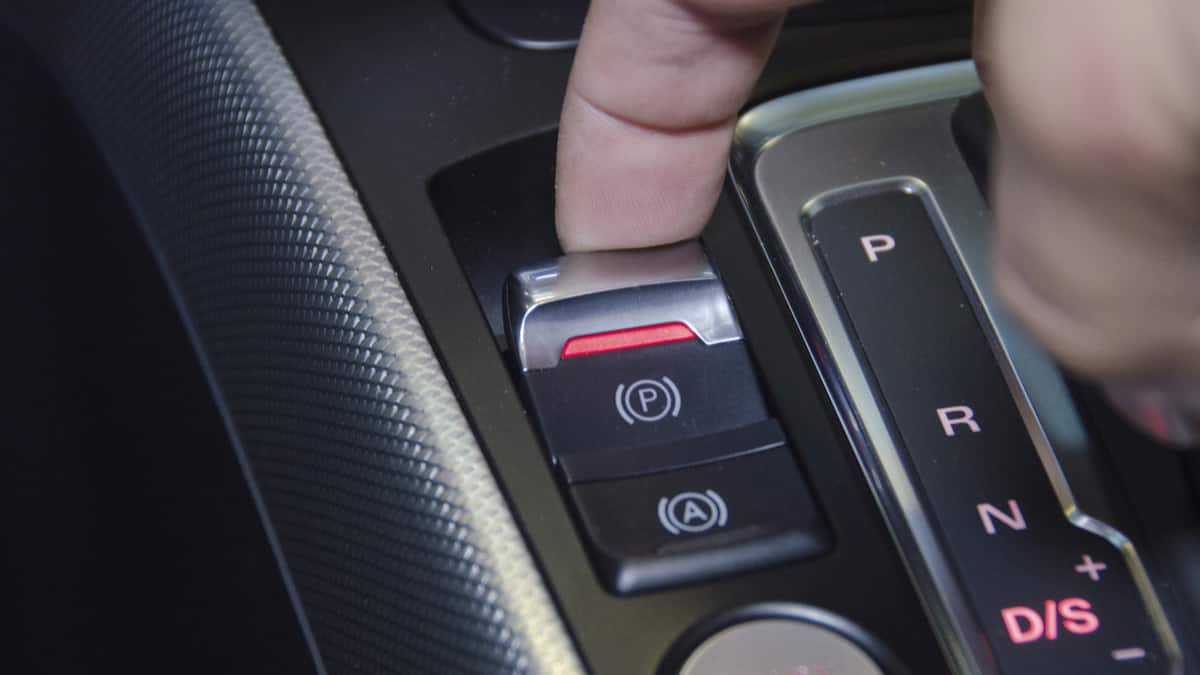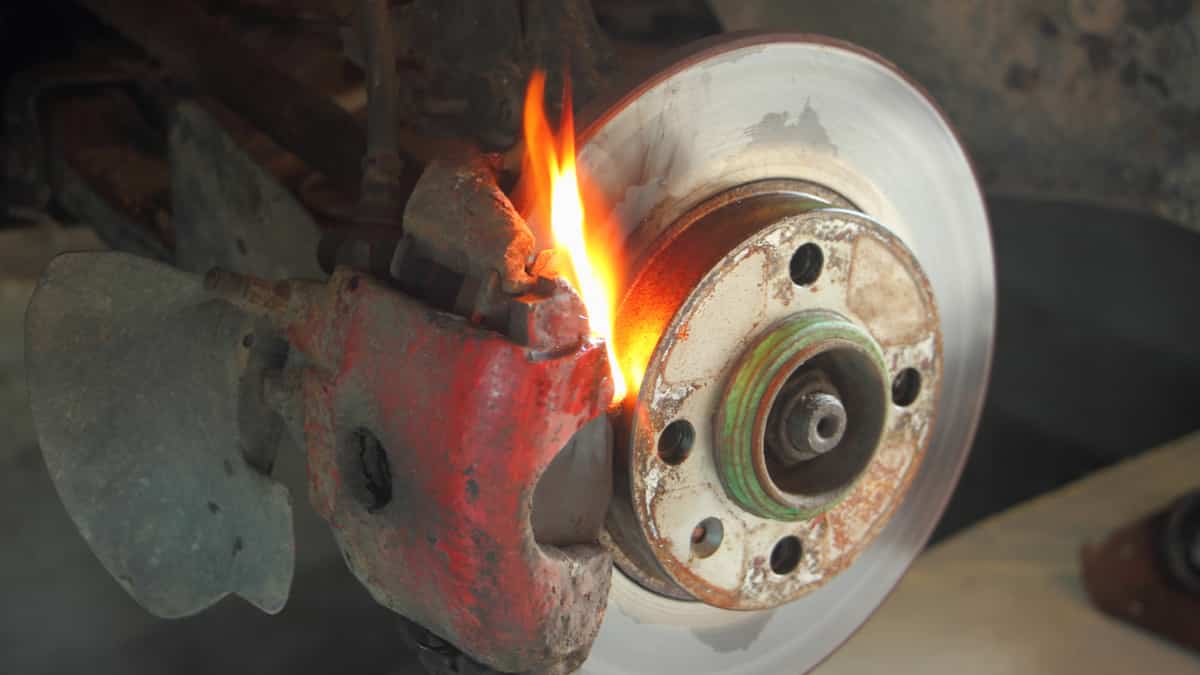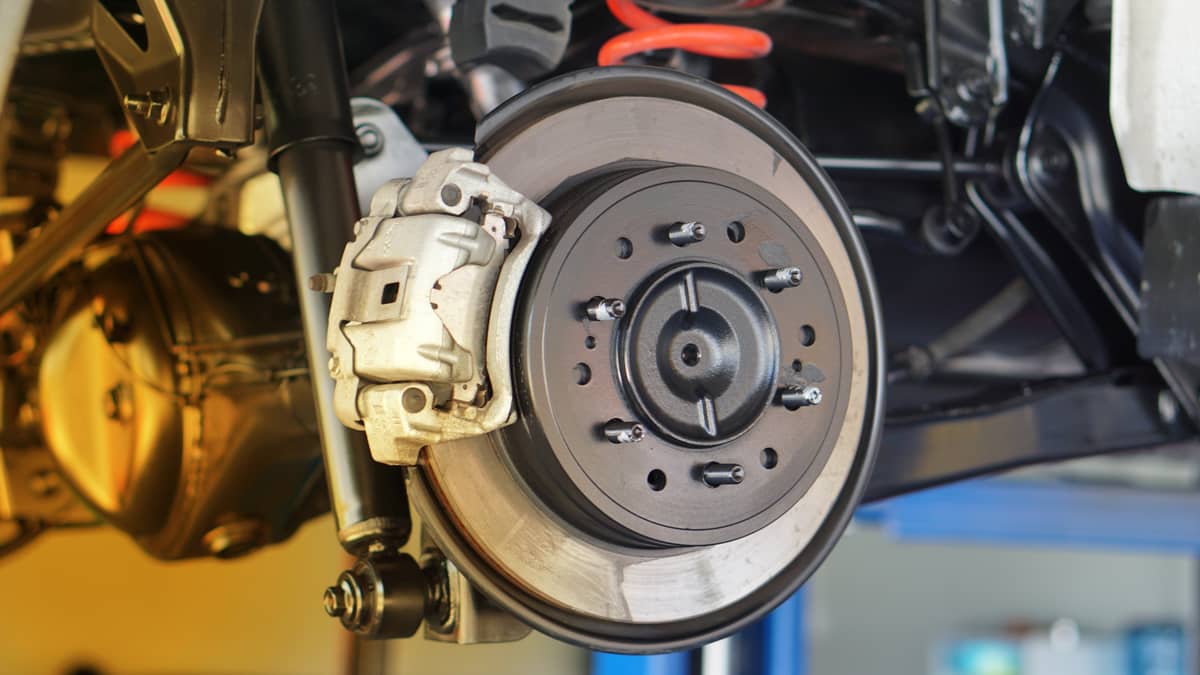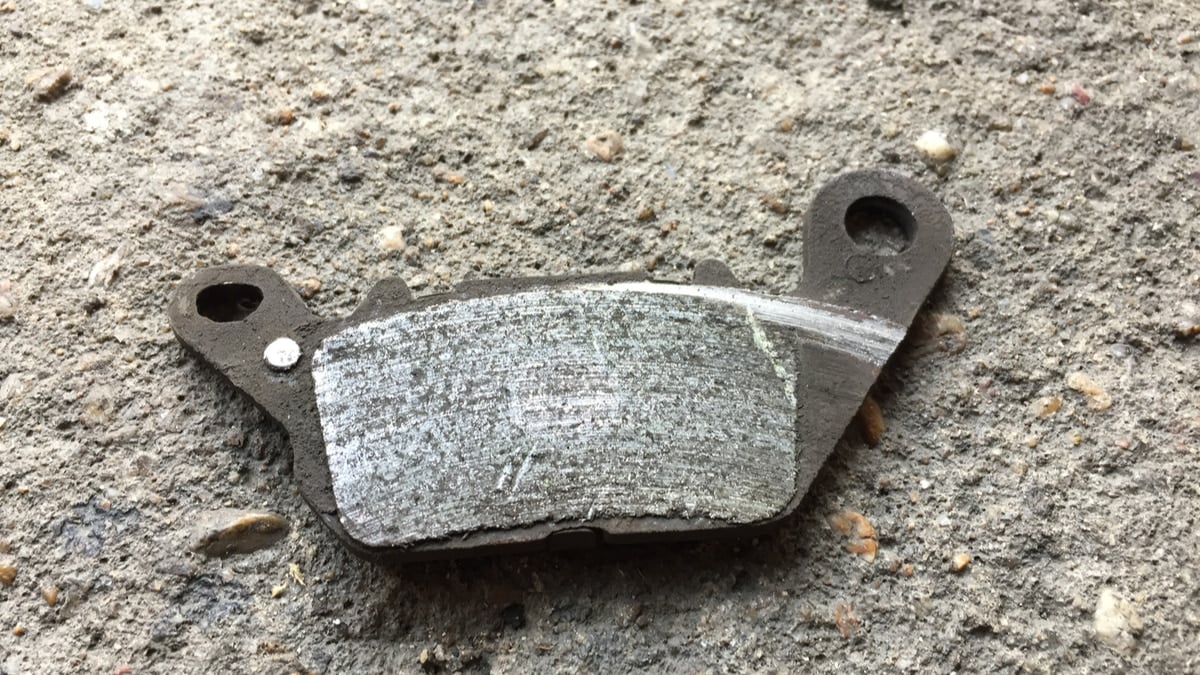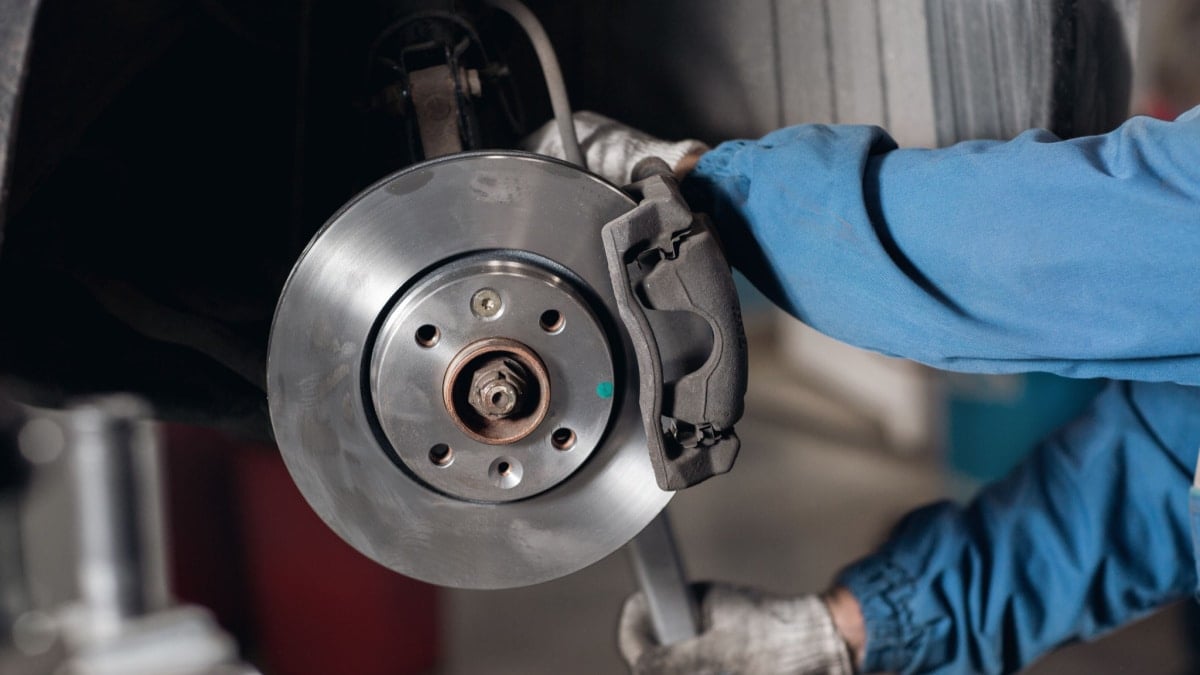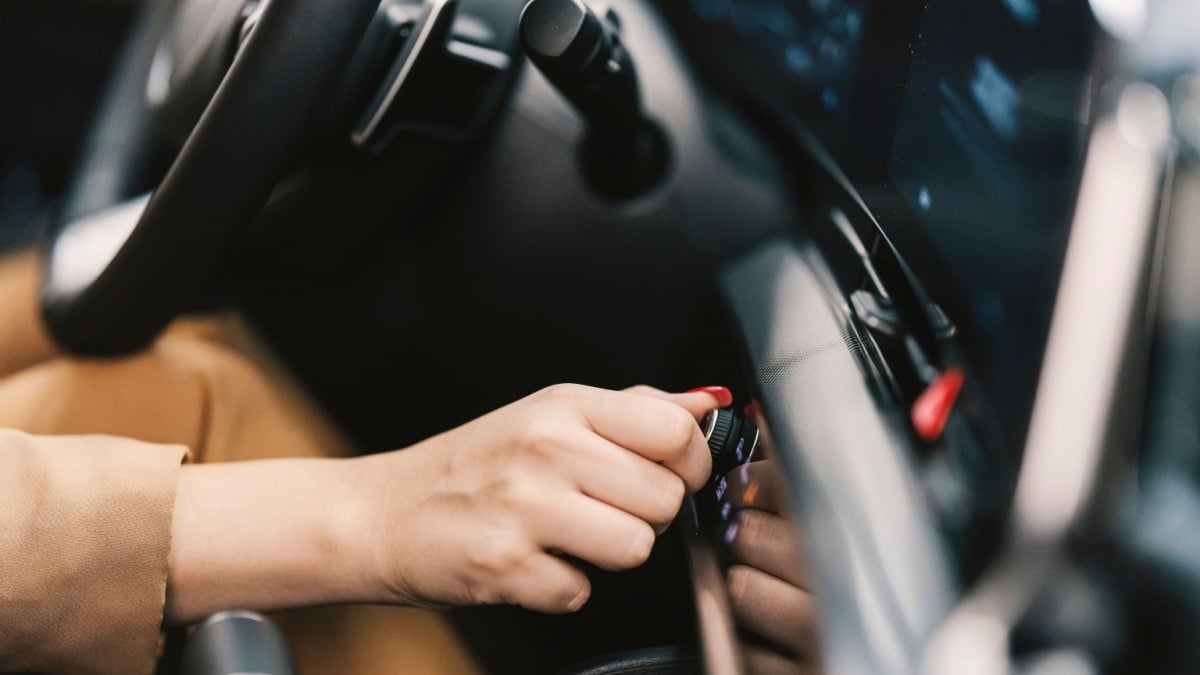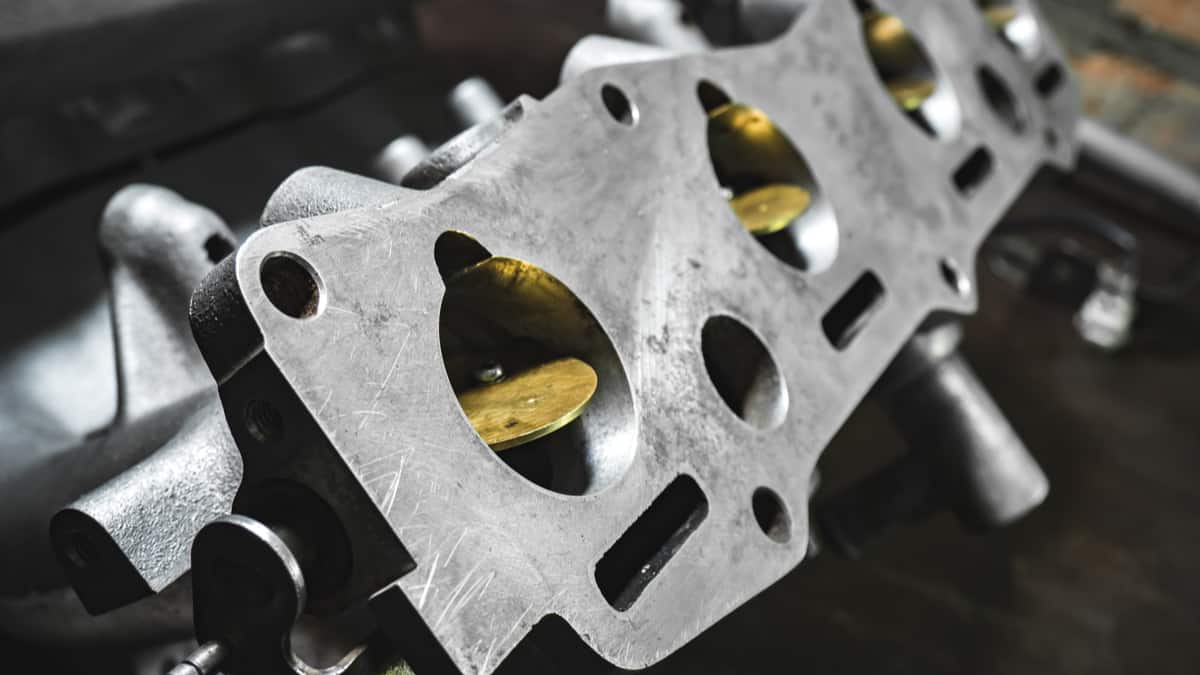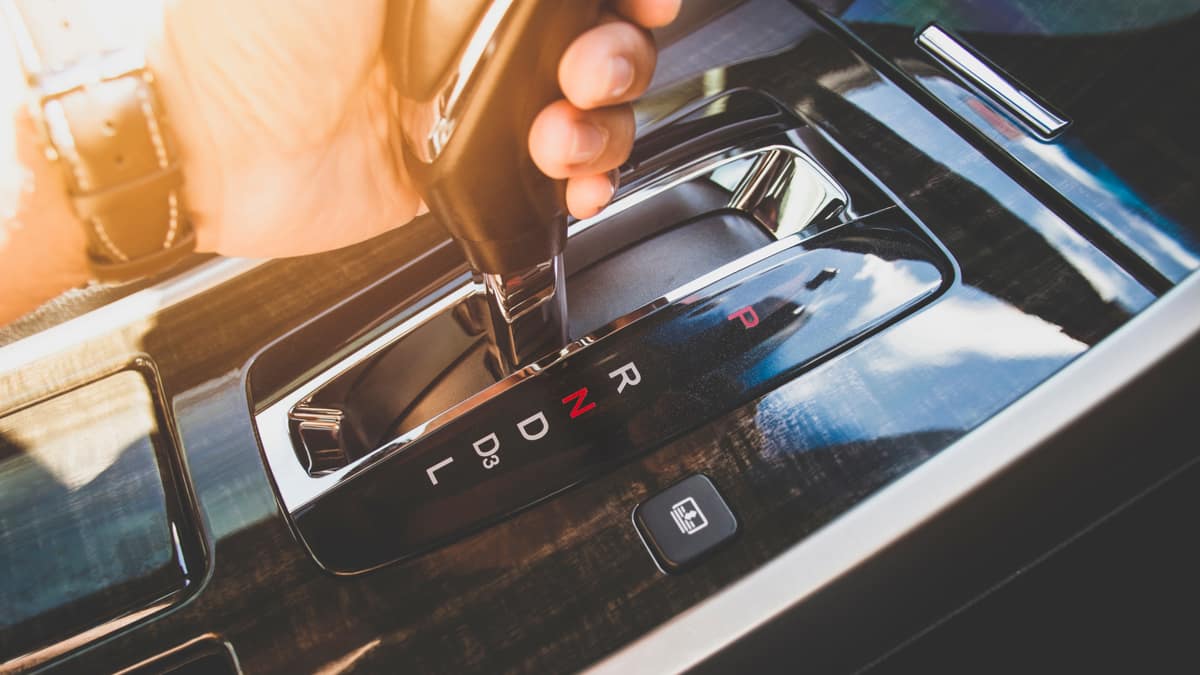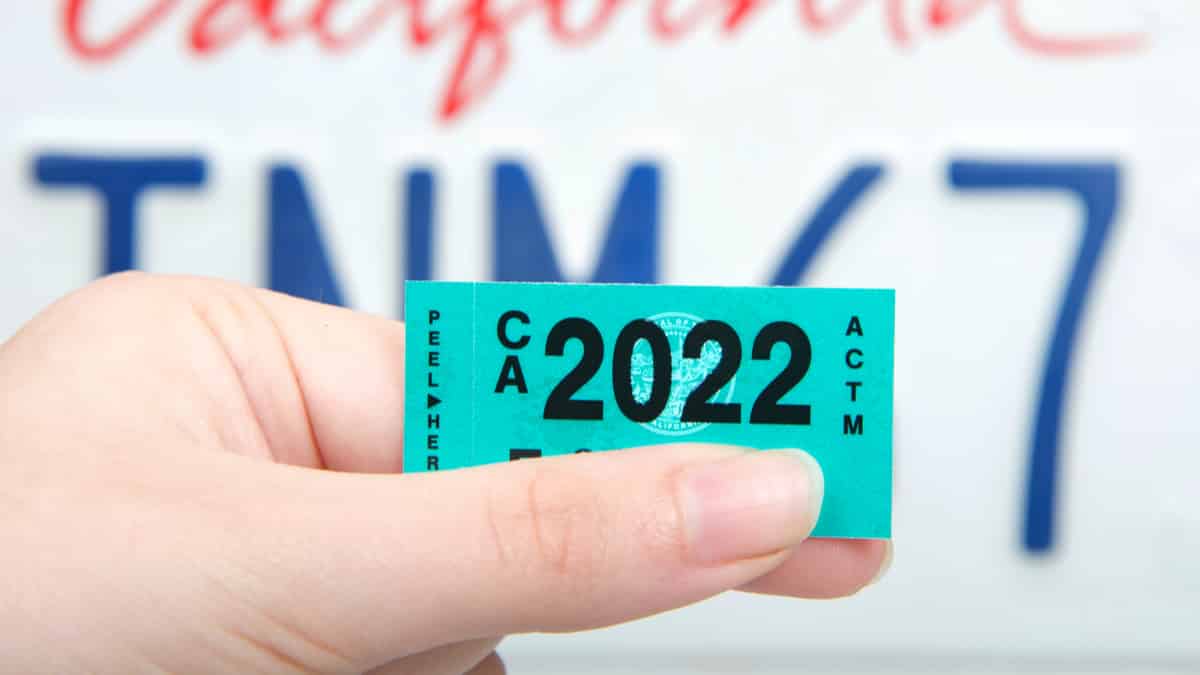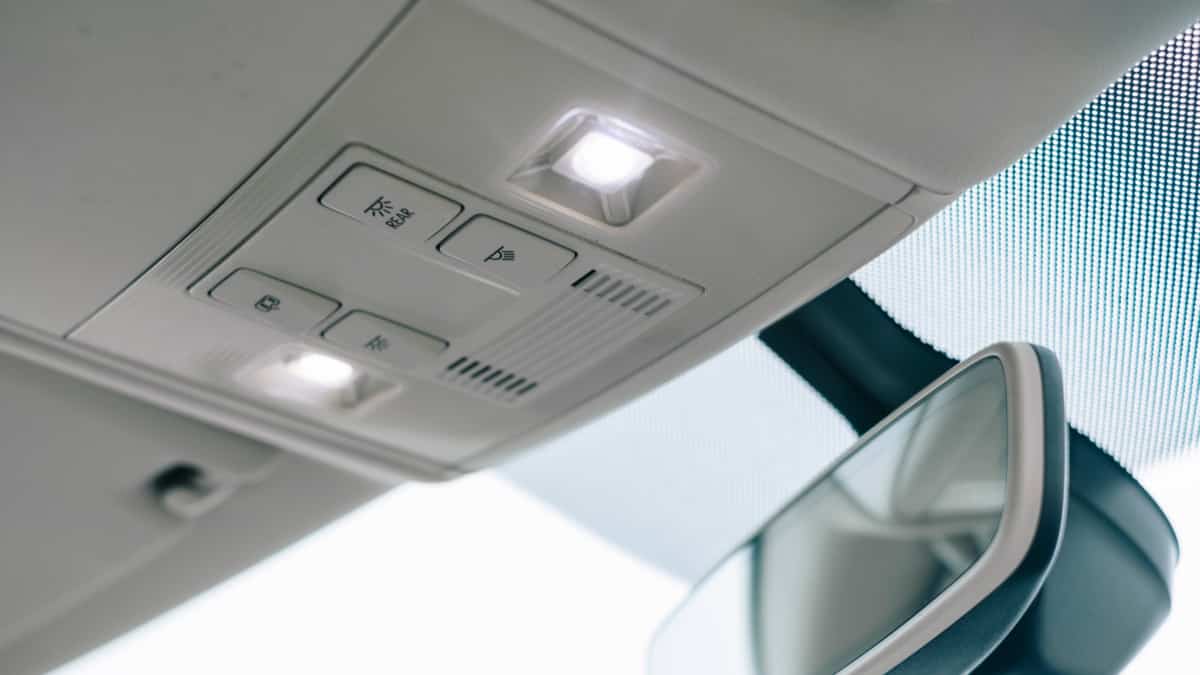When you step on the brakes, the last thing you want to hear is a grinding noise. This is often more alarming than the typical squeaking that occurs when the pads are worn. Plus, the noise can become so loud that other people start giving you funny looks while you are driving. So, what causes this grinding noise when braking, and what can you do about it?
In this guide, I walk through all of the possible reasons that the brakes are grinding. I also outline how to fix the problem for increased safety and less noise. At the end of the article, your top brake questions will finally be answered, so you can determine if it’s safe to drive with grinding brakes.
Causes Of Grinding Noise When Braking
Grinding brakes are often caused by worn out brake pads, warped rotors, or if something gets stuck in the calipers. It can also be caused by broken brake pad shims, low-quality pads, or if you haven’t driven your car in a while. With a proper diagnosis, you will know how to fix the grinding.
Here are the most common reasons you might hear grinding when you step on the brakes.
1. Worn Brake Pads
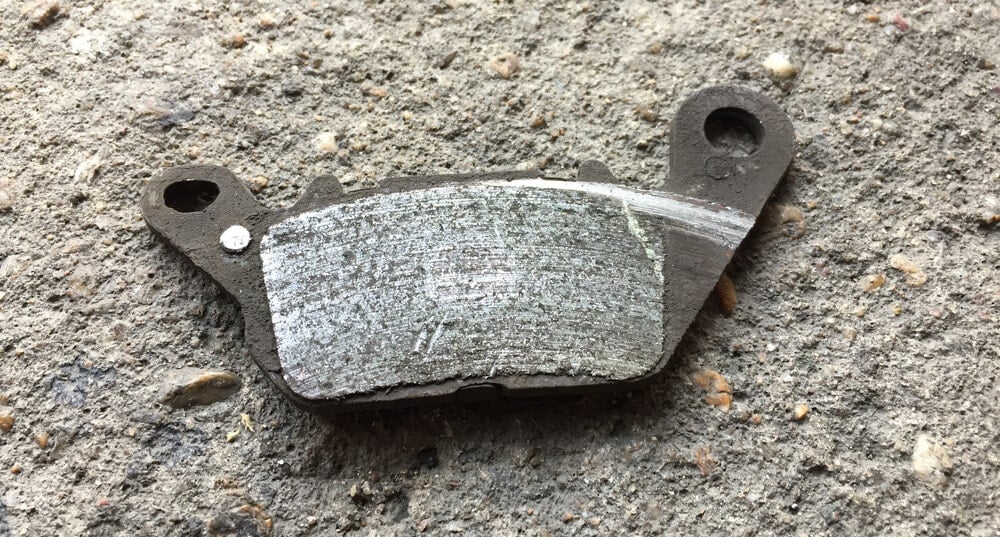
When the brake pads have worn down too far, you will start to hear grinding. The pad material is made from steel, graphite, brass or copper. As this material wears down, the metal backing becomes exposed, which creates that grinding noise.
However, you have warning before this sound occurs. When the brakes first go bad, they are going to make a squeaking or squealing sound. If you can replace them before it goes beyond this, you may never hear the grinding. Brake pads will last anywhere from 25,000 to 60,000 miles, depending on what type you choose.
RELATED: 5 Symptoms Of Worn or Bad Brake Pads
2. Stone Stuck Between Rotor And Caliper
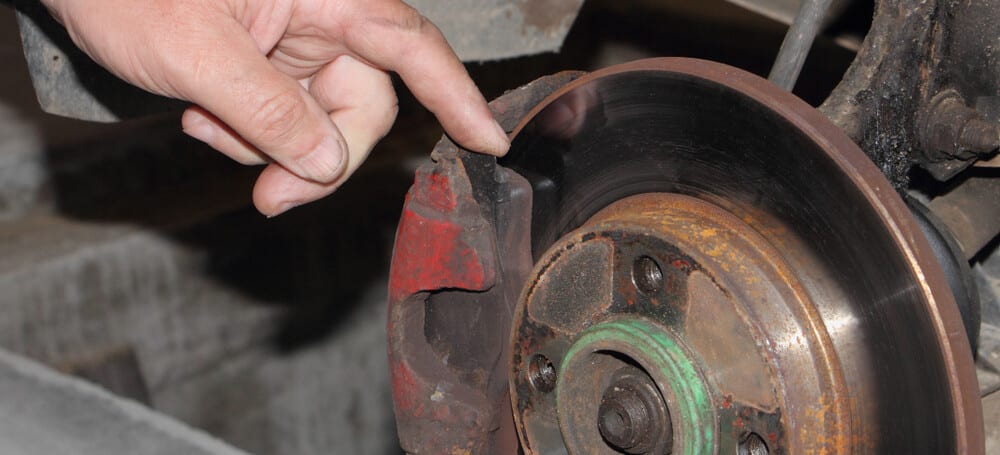
If the grinding or screeching noise occurs even when you aren’t braking, it could be something more than the pads. In fact, there could be debris, such as a stone, stuck in the caliper. If left unchecked, this stone is going to create more damage to the disc brakes.
In some cases, the stuck item will become dislodged on its own just from moving the vehicle. Otherwise, you can attempt to move the item forward and backward to dislodge it.
3. Broken Brake Pad Shims Against Rotor
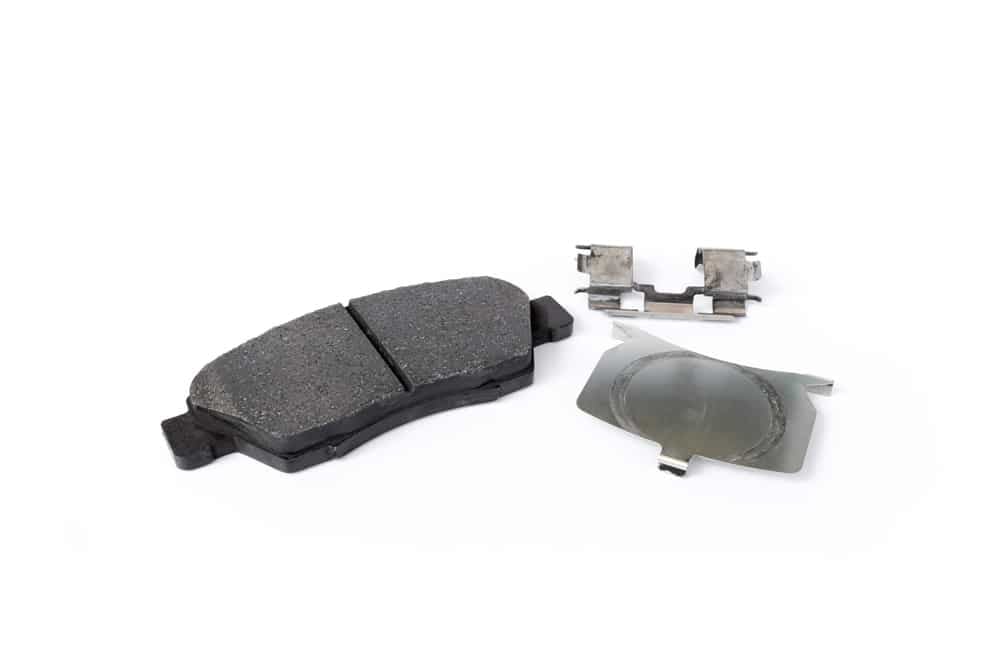
Broken brake shims can also create a grinding sound. Worn-out shims make contact with other components of the brake system, normally the rotor. When the metal touches metal, a grinding sound is made.
For this reason, when the brakes are replaced, new shims will also be installed. If they get missed, you could run into trouble.
4. Rusty or Worn Brake Rotor
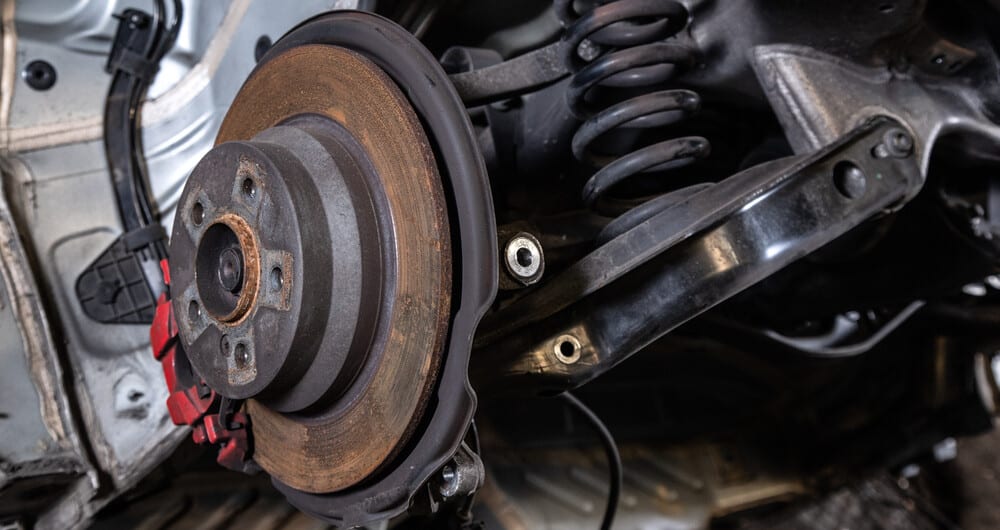
The brake rotors are flat metal discs that help to slow the vehicle down when the calipers squeeze the pads together. Over time, water and dirt infiltrate the rotor and cause warping or rusting.
When the brake rotors are worn, you may hear grinding. In some cases, the rotor can be resurfaced, but it may also need to be replaced. Thankfully, the rotors normally last longer than the brake pads. In general, you can expect to get 50,000 to 70,000 miles out of a set of rotors.
RELATED: 7 Symptoms Of A Bad Brake Rotor
5. Low-Quality Brake Pads
It’s understandable that you want to save money when it comes time to buy new brake pads. Yet, in your pursuit to save money, you may actually create more problems. By choosing inferior pads, you could end up dealing with more noise than you bargained for.
Cheap pads have more metal content than performance brakes. For that reason, they are more susceptible to scraping and grinding. Organic brake pads tend to be the cheapest and lowest quality. They can be made from fiberglass, fibers and Kevlar with resin. Semi-metallic brakes are a step above with better durability and less noise. However, ceramic brake pads are considered the best, but you will pay for them.
RELATED: Ceramic vs Organic Brake Pads (Which is Better?)
6. You Haven’t Driven Your Car In A While
If you don’t drive your car a lot, you may wonder why the brakes would grind. After all, you haven’t been driving enough to wear down the pads. Your problem could actually be caused by sitting still, which will lead to rust.
The noise coming from the brake system will just be the start of your issues after leaving the car sit. Fluids can start leaking, flat spots can form on the tires, and the battery could die. You could end up dealing with a long list of problems, which is why it’s better to drive the vehicle at least once a week.
How To Fix A Grinding Noise When Braking
It doesn’t matter how much experience you have – there are ways to figure out what’s going on with the brakes once they start grinding. I have a few simple steps for you to follow, but you should only proceed with the projects that you are comfortable with.
Here are five steps to consider.
1. Determine Which Wheel It’s Coming From
The best way to get to the heart of the issue is to figure out where the noise is coming from. If you can pinpoint where it’s coming from, you will have an easier time repairing the problem.
If you are unable to tell where the noise is originating, see if you can get a friend to help. They can stand outside while you brake in the driveway.
2. Remove Wheel and Brake Caliper
By understanding where the noise is coming from, you know where to start your investigation. Pull the wheel and brake caliper for a closer look.
You may be able to see what’s wrong when you pull the wheel itself. However, I advise you to dig deeper so you can get a better picture of the whole scenario.
3. Inspect Brake Pads And Rotor
With the brakes exposed, you can get a much better idea of what needs to be repaired. Start by inspecting the brake pads and measure the thickness. New brake pads are going to be 3/8 to 1/2-inch thick. Once they get down to 1/4-inch, you want to replace them. However, you probably won’t hear grinding noises until the pad reaches 1/8-inch or 20 to 25% of the original thickness.
Rotor inspection will be a little different. You aren’t looking for how much thickness remains, but rather for how the surface appears. The rotor surface should be smooth and without imperfections. If there is warping or damage done to the metal surface, it’s time to have them resurfaced or replaced. Both brake pads and rotors should be replaced in pairs.
4. Look For Stuck Stones Or Broken Shims
Small stones and debris aren’t normally going to ruin the brake rotor. Instead, they will automatically come out of the brakes from the everyday operation as long as you can deal with the sounds. If you can’t deal with the sounds, or you are worried the stones are larger, you’ll want to remove them yourself.
Brake pads include shims that prevent noise from happening. While these should have been replaced with the new pads, they can be overlooked. For this reason, a quick inspection is good, especially if your new brakes are making noise.
5. Contact A Professional
If you aren’t familiar with the brake system, you shouldn’t be poking around looking for trouble. It’s best to leave the diagnosis and repair to the professionals.
You may also find that you start the investigation or repair with full confidence that you can resolve the noise, but later find that you’re in over your head. There’s no shame in reaching out for help at this point, either. It’s better to have the brakes taken care of properly than to find yourself in a bigger jam later.
Is It Safe To Drive If My Brakes Are Grinding?
If your brakes make any unusual sounds, you need to have them looked at right away. The brakes could fail at any time and leave you in a dangerous situation. For the cost to replace brake pads, rotors, and other components, it doesn’t make sense to put yourself at risk on the road.
How Much Does It Cost To Fix Grinding Brakes?
On average, you may spend $150 per axle to replace the brake pads. If you need new rotors, expect to spend $200 per axle. Aside from these jobs, you may also need to have service if there’s something stuck in the brakes. Either way, if you can perform the work yourself, you can save more money.
How Long Can I Drive On Grinding Brakes?
You shouldn’t drive on grinding brakes at all. When the pads first started to wear, you would have had a warning sign with squealing and squeaking. Once grinding occurs, metal is contacting metal, which is dangerous. Even if the grinding isn’t coming from the brake pads, there’s something wrong that needs immediate attention.
Will Replacing Brake Pads Stop Grinding?
If the grinding is caused by worn-out brake pads, replacing them is your only option. However, if you replace the pads and still hear grinding, you may have also needed a new set of rotors. That’s why it’s important to diagnose the issue before you authorize a repair.
What Happens If You Don’t Fix Grinding Brakes?
If the brake pads or rotors fail, you could find yourself without brakes when you need them the most. The grinding serves as a warning that something major is wrong with the braking system that needs your attention. By neglecting the fix, you could also cause further damage to the vital braking components.
If you hear a grinding noise when braking, you should always take it seriously. This warning sound is attempting to alert you of danger. Whether you need to have new brake pads installed, have the rotors resurfaced, or get something stuck out of the system, it’s better to deal with it immediately. Otherwise, you could end up in a terrible situation when your brakes fail to work properly.
With the right diagnosis, it’s not hard to resolve most brake issues quickly. If you have the right tools and some expertise, you could even perform some of the jobs in your home garage. Most home mechanics enjoy the challenge of putting a new set of brake pads on a car. However, there’s nothing wrong with getting more help when you feel the job is more than you can handle. After all, what’s most important is that everyone remains safe on the road.
Learn more:
- New Brakes Squeaking? – Common Causes & How to Fix it
- Brake Noise – Causes & Solutions (Low & High Speed)
- 5 Cheapest Places to Get Brakes Done
Categories: Brakes, Troubleshooting
